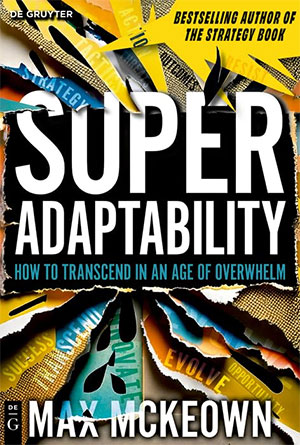Why leaders should trust their intuition
Leaders who balance their gut feelings with analytical thinking make faster, more authentic decisions, especially when navigating complexity in fast-paced environments.
Why neurodivergent leaders are still made to feel like outsiders
It's about time that organisations start addressing the structural realities that continue to marginalise neurodivergent professionals in the workplace.
Balancing the corporate gender tightrope
Gender inequality remains entrenched on corporate boards. So is a better understanding cognitive diversity the answer to getting more women in the boardroom?
How fractional leadership reduces executive burnout
As ever-increasing pressures make traditional full-time executive roles psychologically unsustainable, the structure of leadership needs a significant rethink.
Remote work under scrutiny
Across the EU and beyond, labour laws are evolving to reflect the emergence of flexible working. Here’s what HR leaders must know as regulations tighten.
How to have hope amid political chaos
Amid chaos and dysfunction, it's worth remembering that most people, most of the time, are inclined toward fairness, cooperation and kindness.
Breaking the silence: supporting men's mental health in the workplace
Managers can play a pivotal role in supporting male employees' mental health by creating safe spaces, recognising masking behaviours and promoting vulnerability.
Has traditional team building had its day?
UK companies spend around £200 million annually on company away days and team-building activities. But does this investment really enhance productivity or collaboration?
CPOs: leadership in a challenging landscape
In an era of constant disruption, Chief People Officers must embrace AI, leadership agility and business strategy to drive workforce resilience and success.
Building your leadership pipeline: the crucial role of confidence
Healthy confidence is a critical criterion in picking leaders and forecasting future success. Thankfully, it is also a skill that can be developed.
Latest book podcasts
Vish Alluri: The Enlightened Manager
Vish Alluri, co-author of ‘The Enlightened Manager', discusses a thoughtful approach to management which draws on the teachings of the philosopher, Jiddu Krishnamurti.
Steve Cockram: the Voice-Driven Leader
Steve Cockram, co-founder of Giant Worldwide, talks about his latest book, 'The Voice-Driven Leader' and explains how to create environments in which every voice gets heard.
What is Relationship Currency?
Keynote speaker and transformational coach, Ravi Rajani, talks about his new book, 'Relationship currency: five communication habits for limitless influence and business success'.
Hone - how purposeful leaders defy drift
We dive into the new book from Deloitte's Geoff Tuff and Steven Goldbach, 'Hone - how purposeful leaders defy drift'.



